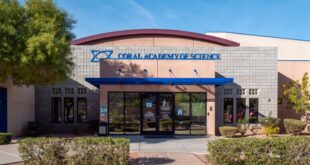New Initiatives in Beijing Aim to Foster Innovation in Primary and Middle Schools
Beijing has introduced 20 new measures to enhance science education in primary and secondary schools, addressing current challenges and fostering innovative talent through collaboration with universities, enterprises, and social resources.
Enhancing Science Education
The Beijing Municipal Education Commission, in partnership with other government departments, announced the measures on Friday, emphasizing the integration of in-class and after-school activities to improve the quality of science education.
“We are deepening curriculum reforms to spark students’ interest in science through play and creativity while enhancing the overall quality of education,” said Wang Pan, deputy director and spokesperson of the commission.
The initiative prioritizes implementing national science curricula, developing STEM model courses, and dedicating at least 10 percent of class time to compulsory interdisciplinary learning.
High schools are encouraged to adopt interdisciplinary science courses, and practical exams in middle school physics, chemistry, and biology will become mandatory.
The measures aim to “provide a fertile ground for students to explore science, enabling early identification and cultivation of top innovative talents”.
Collaboration and Support
Universities and research institutes are encouraged to host open days, offering science courses tailored to younger students and inviting them to explore laboratories and interact with scientists.
Efforts to improve teaching include requiring primary schools to have at least one science teacher with a master’s degree and implementing comprehensive training programs.
Inter-regional research alliances will offer professional support to educators, and universities will organize math and science festivals, thematic camps, and joint research projects.
Integration of Science Education
The BDA School of the High School Affiliated with the Renmin University of China has developed an integrated science curriculum spanning grades one to 12.
Enterprises are also being called on to support the initiative by contributing social classroom resources and partnering with schools.
Artificial intelligence will play a role in modernizing science education by offering diverse digital resources and tools for schools.
Parental Perspective
For parents like Li Chunlian, whose second grader is passionate about science, these developments are a welcome change.
“It’s great to see such attention on science education,” she said. “My son loves visiting AI labs and using VR facilities through his school’s science club. It’s really sparked his interest in modern science.”
 Mind Uncharted Explore. Discover. Learn.
Mind Uncharted Explore. Discover. Learn.


